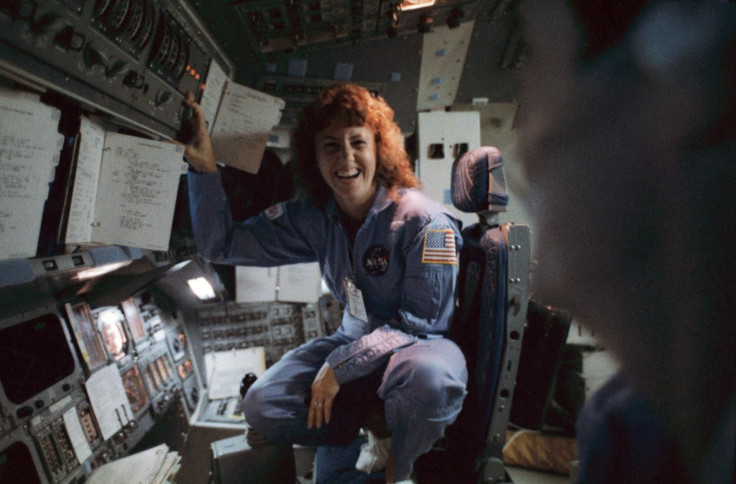NASA Educator Christa McAuliffe's Challenger Lesson Plans Head For International Space Station

More than three decades after the devastating Challenger explosion claimed the lives of all seven passengers on board, the lesson plans of NASA educator Christa McAuliffe will make it to space.
During a live question and answer conference with students at McAuliffe’s alma mater, Framingham State University, on Friday Astronaut Joe Acaba announced that this spring McAuliffe’s lessons would be performed and filmed aboard the station. Over the next few months Acaba, a former teacher himself, will perform some of the experiments. When Acaba returns to Earth and NASA astronaut and former educator Ricky Arnold heads up to the station, he'll take over the remaining lessons.
“We’re looking forward to sharing that with educators and students around the world. It really is going to be a pleasure working with you all and we look forward to helping to inspire the next generation of explorers and educators,” Acaba said during the conference.
McAuliffe prepped six experiments that she planned to do while in space for educational purposes, but neither she nor the experiments ever made it to orbit. The space shuttle meant to carry McAuliffe and six other crew members to space on Jan. 28, 1986 exploded less than two minutes into flight.
This year, some of those experiments will be performed as McAuliffe originally planned in 1985 while others will be slightly tweaked for the actual materials that are currently on the station.
“The first one is going to be the effervescence one and that will be done by Joe,” Lisa Vernal, vice president of communications for the Challenger Center told International Business Times.
The reason that some of the experiments are easier than others for the astronauts on the station to do has to do with the availability of materials, as well as the fact that the lessons were originally planned for travel on the shuttle not the ISS.
“We looked at which we would be able to do with the materials available,” Vernal said. All of the materials necessary for the four experiments that are planned were already on the station, with the exception of chromatography paper that Arnold will bring up when he travels to the station, she added.
The lessons are already available online at the Challenger Center’s website along with videos of McAuliffe practicing her lessons on Earth before launch. Vernal calls them part of the “Living legacy of the Challenger.”
The Challenger Center has been preparing scripts and sharing the adapted lesson plans with NASA ahead of filming. Once the lessons are filmed, the Center will edit them and roll them out on a special page on the Center’s site along with lesson plans for teachers here on Earth.
“Basically what we want to do is have the teachers be able to do the lessons in their classrooms,” Vernal said. These lessons won’t be limited in their availability though, so really anyone interested in completing the experiments as they are adapted for Earth will be able to. The topics that the astronauts are scheduled to cover are effervescence, chromatography, liquids in a zero-gravity environment and Newton’s law.
“For more than 30 years, we have continued the mission of the Challenger crew, reaching more than 5 million students with our hands-on STEM programs. We are honored to have the opportunity to complete Christa’s lessons and share them with students and teachers around the world,” Challenger Center President and CEO, Lance Bush, said in a release from the center.
McAuliffe’s hope was that through teaching her lessons in space, they would reach a “global village,” Irene Porro, the director of the Christa McAuliffe Center at FSU told IBT. The lessons are just one part of the memory of the Challenger crew and with the new plan to bring them to film, “Christa’s message of not just the science content, but being able to reach the global village, is going to become reality,” Porro said. “They were not lost, the message she had with this lesson was not lost.”
© Copyright IBTimes 2024. All rights reserved.











